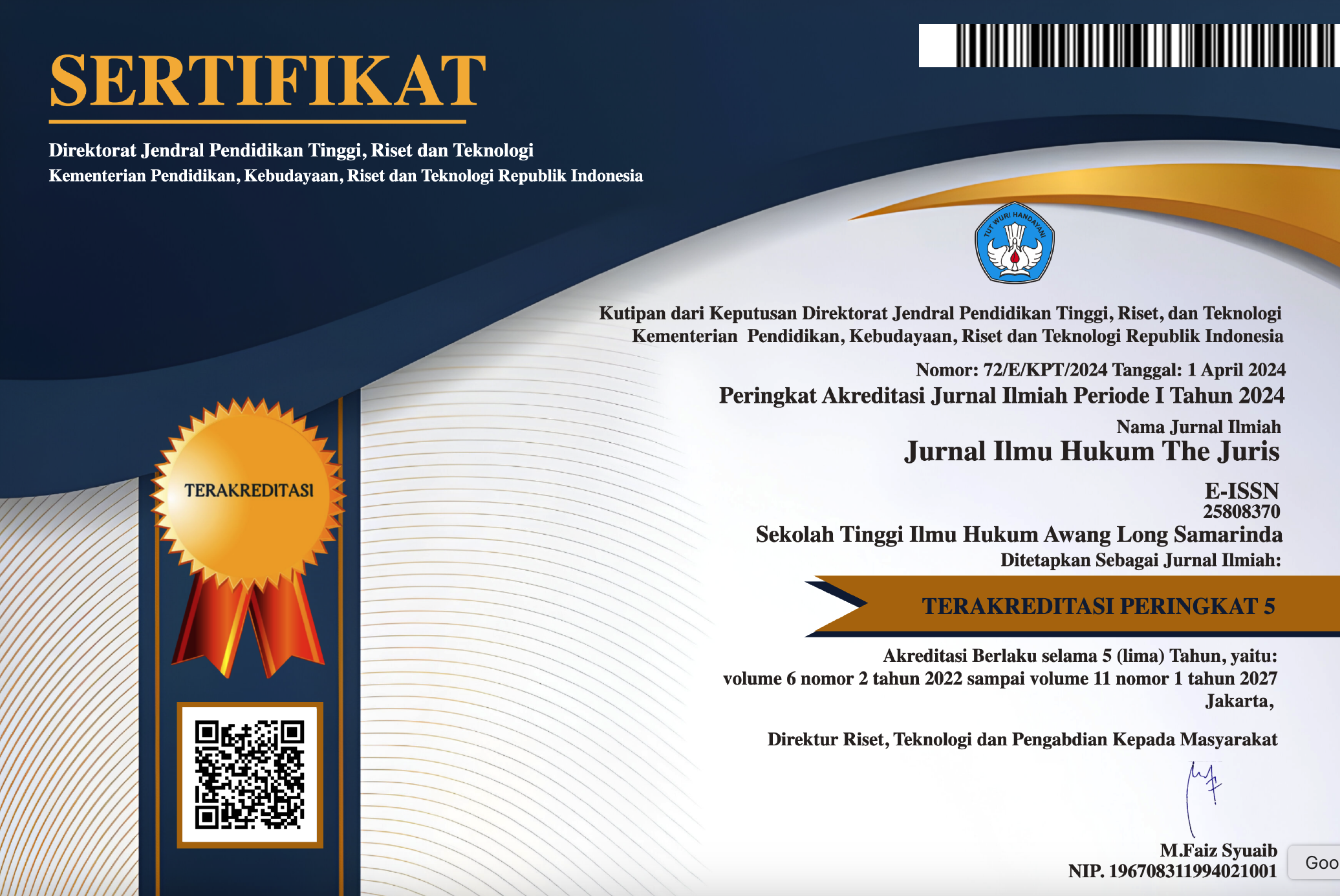PENEGAKAN HUKUM TERHADAP PENADAHAN BARANG HASIL CURIAN DI POLRES ROKAN HILIR BERDASARKAN KITAB UNDANG-UNDANG HUKUM PIDANA
Abstract
Items such as electronics, motor vehicles, and other valuable goods are sold quickly, making stolen goods difficult to trace. This criminal network complicates law enforcement efforts. Law enforcement against theft and fencing must be carried out firmly to maintain order and a sense of security in society. Perpetrators of theft and fencing can both be subjected to criminal sanctions in accordance with the provisions of the Indonesian Penal Code (KUHP). The purpose of this study is to analyze law enforcement against fencing stolen goods in Rokan Hilir Police jurisdiction based on the Penal Code. The method used is sociological legal research. The results of the study reveal that law enforcement against fencing stolen goods in the Rokan Hilir Police jurisdiction, based on the Penal Code, has not been effectively implemented. This is evidenced by the increasing prevalence of fencing stolen goods, as referred to in Article 480 of the Penal Code. This article regulates the criminal act of fencing, where a person can be punished if they are proven to have knowingly received, purchased, or stored goods resulting from a criminal act such as theft. The obstacles in law enforcement against fencing stolen goods in the Rokan Hilir Police jurisdiction, based on the Penal Code, include the difficulty of proving the element of intent on the part of the fencing perpetrators, the low public awareness of reporting fencing activities or involvement in the trade of stolen goods, challenges in identifying fencing perpetrators, and limited resources and technology for tracking stolen goods transactions, which further hinder the law enforcement process. Efforts to overcome these obstacles include improving coordination among law enforcement agencies, strengthening the capacity of investigative personnel in understanding and applying the articles governing the crime of fencing, and adopting a more inclusive approach with the community.
Downloads
References
Afriani, L., Fajarianto, O., Harimurti, E. R., Nadiputri, A. N., & Putri, V. K. (2024). Aromatherapy candles as double protection: A modern solution to a classic problem. IJESS International Journal of Education and Social Science, 5(1), 155-160.
Andi Hamzah. (2009). Terminology Hukum Pidana. Jakarta: Sinar Grafika
Andi Hamzah. (2010). Delik-Delik Tertentu (Special Delicten) Di Dalam KUHP. Jakarta: Sinar Grafika
Bisri, I. (2011). Sistem Hukum Indonesia: Prinsip-Prinsip dan Implementasi Hukum di Indonesia. Jakarta: Rajawali Pers
Harsono, Y., Fajarianto, O., & Afriani, L. (2024). The Influence of Leadership Style and Work Discipline on Employee Performance. IJESS International Journal of Education and Social Science, 5(1), 1-8.
Kitab Undang-undang Hukum Pidana (KUHP).
Lamintang, P. A. F. (1997). Dasar-Dasar Hukum Pidana Indonesia. Bandung: Citra Aditya Bakti
Lamintang, P. A. F., & Lamintang, T. (2009). Delik-Delik Khusus Kejahatan Terhadap Harta Kekayaan. Jakarta: Sinar Grafika
Moeljatno. (2009). Asas-Asas Hukum Pidana. Jakarta: Rineka Cipta
Soesilo, R. (1995). Kitab Undang-Undang Hukum Pidana (KUHP). Bogor: Politeia
Tim Reality. (2008). Kamus Terbaru Bahasa Indonesia. Surabaya: Reality Publisher
Usman, H., Wardhani, P. A., Tjakrawerdaja, W., Siregar, Y. E. Y., Bayu, G. W., Kamin, Y., & Fajarianto, O. (2024). Ecoliteracy-Based on Digital Storytelling Comic Media for Elementary School in Indonesia. Library Progress International, 44(3), 15833-15845.
Copyright (c) 2024 Anta Arief Siregar, Bagio Kadaryanto, Irawan Harahap

This work is licensed under a Creative Commons Attribution-ShareAlike 4.0 International License.







